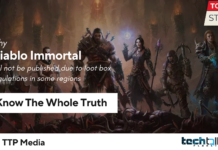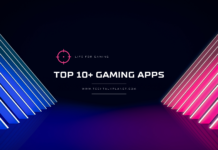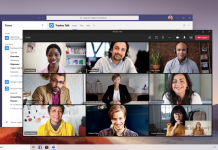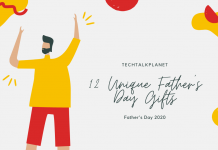
Google wants to change the way you perceive search. It would be an overstatement—but not a significant one—to claim that it is shifting to compete in a world where TikTok and Instagram are revolutionizing how the internet functions. Nowadays, users of Google want to be surprised and thrilled as often as they merely want answers to their searches on a more visual, interactive internet. What use does a search engine serve in the scenario? Google may not seem entirely different when you wake up tomorrow, but the transition has already begun.
Google unveiled a number of brand-new methods for consumers to browse the internet at its annual Search On event today. The majority of these carry on Google’s recent trend of looking for more organic and visual methods for users to submit queries and receive results. Instead of wasting time attempting to enter the ideal combination of terms into the search box, you can now ask Google a question by taking a photo or talking into your phone’s microphone. Google is also searching for new methods to automatically offer content that you might find interesting.
Really, it’s an intriguing mental exercise to imagine what the Google For You page might look like. The search team at Google is working on it but is unsure of the exact answer. And so far, it appears like the solution will begin to show up on the Google iOS app’s home page. Many of Google’s newest features are currently being developed there, and many users are already utilising these features to engage with Google in novel ways.
Google officials repeatedly said that search is undergoing a thorough reinvention in interviews conducted before to the event. According to Prabhakar Raghavan, Google’s SVP in charge of search, “basically the rules of the game” have been “Dear Human, if you follow the rules and write your questions exactly correctly, we’ll provide you fantastic answers to your requirements” for the last 20 years. “But the tables are shifting today owing to extraordinary, and quite simply unparalleled, developments in AI, machine learning, and computer vision.”
Google Lens and the new Multisearch tool, which allows you to search with an image and then annotate it with words, are both powered by these developments in AI and computer vision. (Google usually explains this with a dress; just take a picture of the green dress you want to wear and add the words “in purple” and you’ll be good to go.) The global rollout of multisearch has been underway for a few months now. A mosaic of pictures and data widgets is starting to replace portions of Google’s traditional list of links in certain settings. (Google believes that links are still occasionally the best solution, but not always. nevermind typically.) Google is also expanding its Immersive View feature in Maps, which allows you to see a location from above before visiting it. Over time, Google’s inputs and outputs have both become more multisensory.
Behind the scenes of the announcements, Google’s search engine is undergoing a significant change. Raghavan’s game’s rules have always been based on the notion that there is only one correct response, and all you had to do to find it was ask Google the precise question. Google, though, is gradually accepting the notion that search isn’t a question-and-answer system. It’s a method for discovering new things and trying to understand things for which there are no simple explanations. And it alters both what consumers expect from Google and Google’s accountability for what it chooses to provide for them.
According to Liz Reid, the vice president in charge of all of Google’s search products, users have been using Google in these more covert ways for a time. Yes, of course, the majority of visitors still come to find an answer to a query or a link; by far the most common search phrases are “Facebook” and “Weather.” Others go a longer but more focused route; they want to purchase a bicycle or discover the onion’s past. Then, argues Reid, “people do wander occasionally.”
The wanderers have far less clear intentions when they visit Google. They were chatting to a buddy about a destination that seemed fascinating when they overheard a phrase they didn’t understand; they are interested in learning more about Adele. These are the youthful internet users, according to Raghavan, who utilise the internet in a more naturally visual way, for whom TikTok is a surprisingly helpful search engine. The feed in the Google app, the one off to the side of your homescreen on Android, Google News, and other Google-owned discovery engines are already highly well-liked, and Google is attempting to channel some of that enthusiasm into its most significant product.
A fresh way of considering autocomplete is one approach that shows up in practise. In Reid’s demonstration, when a user puts in “Best,” a few suggestions with what Google refers to as “chips”—tappable buttons that enhance your search results—appear right below. Buy, Movies, Restaurants, and a few other options are available under “Best.” As you type, “Best Mexico cities” displays other options such as “for retirees” and “for expats.” According to Reid, the chips may occasionally be used to assist you narrow down your search to get a certain outcome. In other cases, it might widen your search or make an ancillary suggestion. In both scenarios, Google’s AI enables it to go from a syntactic search—which merely anticipates the word you’ll write based on the previous one—to a semantic search, which really comprehends the content and context of your query.
Google is also shifting away from a ranked list of links into (it hopes) a tool for expanding your horizons once you’ve arrived on the (also increasingly graphic) results page. According to Reid, “if you think about our rating, theoretically, it becomes worse as you scroll further.” Back when Google wasn’t always delivering the greatest thing to the top, a tonne of links used lot be beneficial. Reid now claims that skill is one Google is good at. As you browse, keep in mind that “what you desire is usually not a little worse version of the same thing, but rather something somewhat different.” In the future, a group of results for a similar search on the same topic or an adjacent issue may appear at the bottom of your results page.
For the last 20 years, searching on Google has always included entering a query, scrolling through the results, and, if you don’t like what you see, entering a another one. Your keyword phrase was your sole tool. That is incorrect, according to Raghavan, who adds that it is terrible when consumers place the burden on themselves. “We have an issue; we should repair it if you didn’t receive what you wanted.”
All of this gives Google additional authority over the search results that you view. It brings up long-standing issues with Google’s economic model as well as the bias in its algorithms and perpetually enigmatic ranking methodology. The business has progressively increased the number of results it keeps for itself in recent years by either pointing people to other Google products or just include the solution in the results itself. And right now, the business is starting to take much more aggressive actions in deciding what you see and when. Not only does it provide similar searches, but it also directs you to new subjects and places large, clickable icons just beneath the search field so you know precisely where to go. The Google search box used to be a blank white page, which was renowned as the most precious real estate on the internet. Now, virtually every pixel is giving you messages.
Raghavan is adamant that most issues involving false information and questionable online material are not Google’s to pursue in court. He claims, “We pledge universal access to information,” which entails that if anything is on the internet, “we will reveal it to you, unless restricted by law or some highly restrictive regulation,” he argues. He regularly discusses issues with a variety of viewpoints but no clear solution, and he claims that Google’s role is to present relevant information so that consumers may make the final decision. He likes to use the word “authoritative information,” and Google does too.
And in other circumstances where there is a blatant truth to the topic yet individuals disagree? He admits that it is challenging. “If you inquire of me, ‘Were Arizona ballot boxes stolen?’ Voting machines do not sit on our indexes in Arizona, therefore I am unable to answer yes or no. At the end of the day, he appears to be arguing, Google can only be honest about what it knows. The business has occasionally surfaced incorrect material into the response boxes at the top of the page or ranks false information highly in results, and Raghavan adds that work is always under progress. This has been an issue for Google in the past.
There is a challenging user interface question there as well. The initial “10 blue links” results from Google were incomplete but incredibly information-dense; replacing them with a full-screen image or a link to a movie is both richer and harder to scan. Google will need to improve its ability to explain what you are seeing and why without overburdening the page as it becomes more daring in providing information to you before you even ask for it. It’s undoubtedly difficult, adds Reid. “How can you make things basic enough while being sufficiently obvious?” Similar sentiments might be expressed about the search box: “Empty boxes can be tremendously liberating and uncomplicated, but in other circumstances, they can make you wonder, ‘What am I supposed to do with this box?'” she asks. In terms of the search field, the idea is to simply allow anyone to enter anything and let Google handle it. The results portion is more difficult and ultimately falls more on Google to get it correctly.
Reid claims that many of these initiatives are still in the investigation and testing stages, and she is interested to see how many of them develop. When it comes to reevaluating its fundamental business, Google moves slowly. But she is certain that Google is capable of being more than just a helpful search engine.
She cites the passion of woodworking as an illustration, asking how Google might make it easier if it knew you were interested in it. Yes, by responding to your inquiries, but also by introducing you to interesting new tools, YouTube stars you’ve never heard of, locations where you can go to pick up new skills, and much more. Even the most carefully constructed query won’t return all of that, and 10 blue links won’t either. Google is still the best search engine in the world, but if it wants to compete with TikTok and Instagram and continue to be the hub for culture and knowledge, it needs to be much more.














































